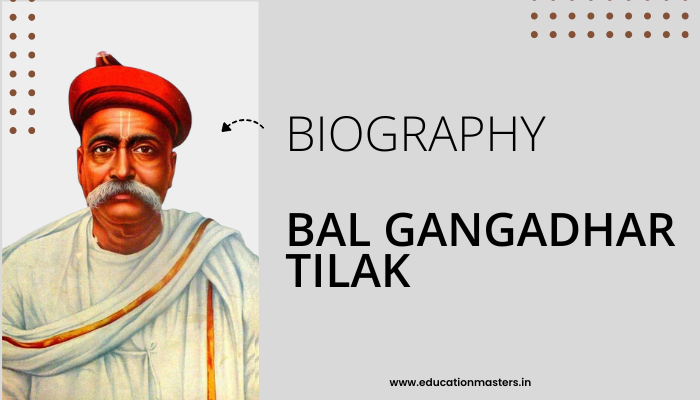| Image |
.jpg) |
| Caption |
Bal Gangadhar Tilak, Indian nationalist leader |
| Birth Name |
Keshav Gangadhar Tilak |
| Birth Place |
Ratnagiri, Bombay Presidency, British India |
| Death Place |
Bombay, Bombay Presidency, British India |
| Resting Place |
Girgaon Chowpatty, Mumbai, India |
| Citizenship |
British Indian |
| Other Names |
Lokmanya Tilak |
| Education |
Bachelor of Arts, Law degree |
| Alma Mater |
Deccan College, University of Bombay |
| Occupation |
Freedom fighter, Lawyer, Journalist, Teacher |
| Known For |
Indian independence movement, Swaraj slogan |
| Notable Works |
Kesari newspaper, The Arctic Home in the Vedas |
| Spouse(s) |
Tapibai (later renamed Satyabhama) |
| Parents |
Gangadhar Tilak (father) |
Early Life and Education
Bal Gangadhar Tilak was born on 23 July 1856 in Ratnagiri, Bombay Presidency. His father, Gangadhar Tilak, was a Sanskrit scholar and a school teacher. Tilak was a brilliant student and earned a Bachelor of Arts in Mathematics from Deccan College in Pune. Later, he obtained a law degree from the University of Bombay. From an early age, he was influenced by Indian scriptures and the cultural richness of Hindu philosophy.
Career
Tilak began his career as a teacher and journalist. He co-founded the Deccan Education Society and the Fergusson College to promote Indian-run education. In 1881, he started the newspaper Kesari, which became a powerful voice against British rule.
He played a major role in the Indian freedom movement and advocated for Swaraj (self-rule) as a national goal. His popular slogan, "Swaraj is my birthright, and I shall have it", became a rallying cry for Indians. He also popularized Ganesh Utsav and Shivaji Jayanti to unite people under a nationalist cause.
He was part of the Lal-Bal-Pal trio and clashed with moderate Congress leaders. His writings and speeches earned him imprisonment several times. He also wrote philosophical and historical works, including The Arctic Home in the Vedas and a commentary on the Bhagavad Gita.
Personal Life
Tilak was married to Tapibai, later renamed Satyabhama, at a young age, as per the customs of the time. They had three children. Despite his political engagements, he maintained a disciplined and spiritual life and was deeply committed to the cultural revival of India.
Death and Legacy
Tilak passed away on 1 August 1920 in Bombay due to poor health. His funeral was attended by thousands, including Mahatma Gandhi, who called him "The Maker of Modern India."
Tilak’s legacy lives on in Indian politics and history. He inspired future freedom fighters and helped lay the foundation for India’s eventual independence.
Awards and Honors
-
Posthumously titled Lokmanya (approved by the people)
-
Various institutions, roads, and scholarships named in his honor
Bibliography
References
-
Brown, D. M. (1994). Tilak and Gokhale: Revolution and Reform in the Making of Modern India.
-
Wolpert, Stanley (2006). Tilak and the Nationalist Movement.
-
Indian Independence Archives and Government publications
External Links
सरकारी नौकरियों, जीके अपडेट्स और करेंट अफेयर्स की ताज़ा जानकारी सबसे पहले पाने के लिए:

.jpg)



.png)
.jpg)
.jpg)


